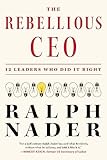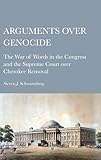Mao Zedong, the leader of the Chinese revolution and long-time Chairman of the Communist Party who died in 1976, would have been 120 years old this past December 26.
Despite the fact that his successors in the leadership of the Chinese Communist Party (CCP) made what Mao would have viewed as the spectacular error of “taking the capitalist road,” the masses of people in China still venerate their old leader.
The influential Chinese newspaper Global Times published a new opinion poll on the late leader’s birthday that revealed that more than 85% of respondents see the merits of Mao Zedong as greatly outweighing his mistakes, with more than 90% of respondents showing reverence or respect to Mao. ?The former “Great Helmsman” himself judged his own record as 70% positive, 30% negative.
The findings showed respondents aged above 50 and those with a high school or vocational school education are more likely to revere Mao, while respondents who have a bachelor’s degree or above are more likely to be critical of him.??
In a multiple choice poll, nearly 90% of respondents believe Mao’s greatest merit was founding an independent nation through revolution, while nearly 60% admire him for advocating the idea of serving the people and spreading the notion of fairness — basic ingredients in Mao’s revolutionary socialist? teachings.
According to Global Times: “Nearly 80% of respondents believe Mao’s main fault was launching the Cultural Revolution (1966-76), around 60% of them voted for his pushing the Great Leap Forward (1958-61) out of not respecting economic rules, and 46% mentioned Mao’s main fault as launching a personality cult,” critiques that echo the CCP’s position today. ?
“More than 90% of respondents believe that Mao’s era still influences today’s China. Those respondents aged from 18 to 29 were most likely to believe Mao’s era still has an influence today, with figures of 96%…. Activities such as galas, exhibitions and seminars are being held nationwide to commemorate the anniversary of his birth.”??
Mao fought the entire notion of what came to be termed “socialism with Chinese characteristics,” a euphemism for building a mostly capitalist economy under the control of the CCP and in the name of building socialism.
This was precisely what the Cultural Revolution was intended to prevent. China, however, has been in an extraordinary transition for over 100 years and it is not over. There is no telling the outcome.
China is an ancient, peaceful, developing country, still touched by vestiges of its revolutionary past, which is seeking to restore its position as an influential global power that it lost two centuries ago.
China does not seek global hegemony, nor is it a danger to world peace, but its incredible economic and industrial growth in recent decades has alarmed the United States, the only existing superpower and world hegemon. At this stage, Washington is obviously seeking to circumscribe China’s influence even within its own geographical sphere of influence — a situation fraught with eventual dangers.
In decades to come this will undoubtedly impact and possibly alter the direction of China‘s continuing transition in one way or another depending on the extent of Washington’s growing antagonism and Beijing response.
It is not possible to predict whether conditions will eventually result in a move to the left by the CCP, but Mao’s continuing mass popularity after nearly four decades bespeaks a lingering influence, like a small but still glowing spark awaiting a dry prairie.










